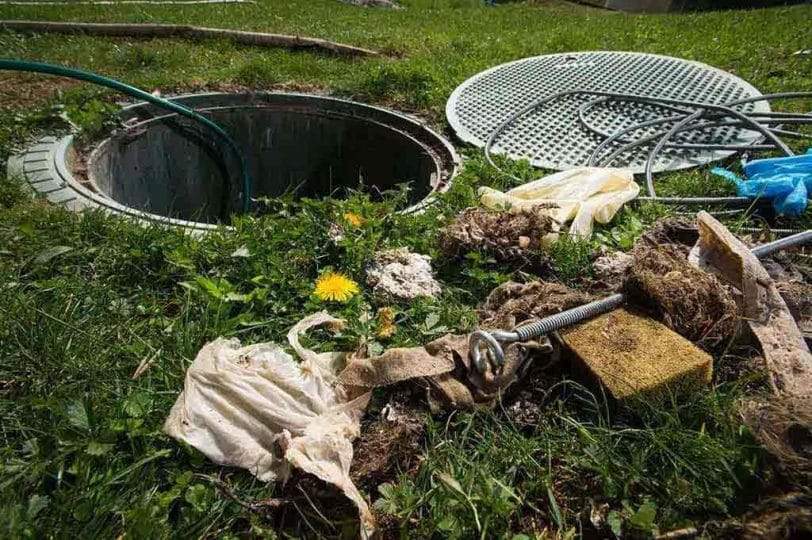No More Septic Smell Outsideâ€"Here’s the Fastest Way to Fix It!
An unpleasant septic odor emanating from your property is not only offensive but also indicative of a potential malfunction within your septic system. This pervasive smell can significantly detract from the enjoyment of your outdoor spaces and raise concerns about the overall health and functionality of your wastewater disposal system. Addressing this issue promptly is crucial, both for aesthetic reasons and to prevent more serious, costly problems down the line. This comprehensive guide will outline the most effective and rapid methods to eliminate external septic smells, ensuring a swift return to a pleasant and odor-free environment.
Identifying the Source of the Odor
Before embarking on any remediation efforts, accurately pinpointing the source of the septic smell is paramount. A haphazard approach may lead to wasted time and resources. The odor's location can provide valuable clues about the underlying problem. For instance, a smell concentrated near the septic tank suggests a tank-related issue, while a more dispersed odor might point towards a problem with the drain field.
Inspecting the Septic Tank and Lid
Begin by thoroughly inspecting the septic tank itself. Pay close attention to the tank lid. A poorly sealed or damaged lid can allow sewer gases to escape. Check for any cracks, gaps, or missing sealant around the lid's perimeter. If damage is evident, repair or replace the lid immediately. This is often the simplest and most overlooked solution to a persistent septic odor. Remember to exercise caution when approaching a septic tank; never open the lid unless you are properly trained and equipped to do so.
Examining the Drain Field Area
The drain field, responsible for filtering wastewater, is another potential source of odor. Inspect the area surrounding the drain field for signs of saturation or pooling water. Soggy or excessively wet ground indicates that the drain field may be overloaded or failing. Standing water provides an ideal breeding ground for odor-causing bacteria. Furthermore, observe the vegetation in the area; unusually lush or wilting plants can indicate wastewater seepage.
Checking for Leaks in the Pipes
Leaks in the pipes connecting your home to the septic tank can also contribute to unpleasant smells. Inspect these pipes for any visible damage or cracks. While this may require some excavation, identifying and repairing leaks early can prevent significant problems and additional odor.
Immediate Solutions for Odor Control
While addressing the underlying problem is crucial for long-term resolution, immediate measures can effectively neutralize the odor and make your outdoor space more enjoyable in the meantime. Several readily available options can provide rapid relief from the offensive smell.
Utilizing Odor Neutralizers and Bioremediators
A wide range of commercial septic odor neutralizers and bioremediators are available. These products typically contain enzymes or bacteria that break down organic matter, reducing the production of foul-smelling gases. Follow the manufacturer's instructions carefully when applying these products. Some may require direct application to the septic tank, while others can be added to toilets or drains.
Employing Activated Carbon
Activated carbon is a highly porous material that effectively adsorbs odor-causing molecules. Placing activated carbon filters near the source of the odor can provide immediate relief. These filters are available in various forms, from granular media to specialized odor-absorbing pads. Regular replacement of the filters is necessary for continued effectiveness.
Applying Baking Soda
Baking soda is a simple and readily available household remedy that can temporarily neutralize septic odors. Sprinkle a generous amount of baking soda around the affected area. Its alkaline nature helps to neutralize the acidic compounds responsible for the unpleasant smell. However, baking soda only masks the odor; it doesn't address the underlying issue.
Long-Term Solutions for Septic System Maintenance
While immediate solutions mask the odor, long-term solutions focus on preventing future occurrences. Regular maintenance and proper usage of your septic system are paramount for preventing persistent odor issues.
Regular Pumping and Inspection
Schedule regular pumping and inspection of your septic tank. This is the cornerstone of preventative maintenance. The frequency of pumping depends on factors such as tank size and household size, but a general guideline is every 3-5 years. Regular inspections allow professionals to identify potential problems early, preventing costly repairs and unpleasant odors.
Avoiding Certain Waste Disposal Practices
Certain household waste products can significantly impact the functionality of your septic system, leading to odors and malfunctions. Avoid flushing items such as:
- Flushable wipes (these do not break down easily)
- Feminine hygiene products
- Excessive amounts of grease or oil
- Paper towels
- Cotton balls and Q-tips
These items can clog pipes, overload the septic tank, and contribute to unpleasant smells. Proper waste disposal practices are crucial for maintaining a healthy septic system.
Water Conservation
Excessive water usage puts unnecessary strain on your septic system, potentially leading to overloading and odors. Conserving water reduces the amount of wastewater entering the system, improving its overall performance. Simple steps such as shorter showers, fixing leaky faucets, and using water-efficient appliances can make a significant difference.
Professional Assessment and Repair
If the odor persists despite your efforts or if you notice other signs of septic system malfunction (e.g., slow drains, gurgling sounds, sewage backups), contact a qualified septic system professional immediately. They have the expertise to diagnose the problem accurately and implement the necessary repairs. Attempting complex repairs yourself can worsen the situation and lead to more extensive and costly damage.
In conclusion, while a quick fix might temporarily alleviate the septic smell outside your home, a comprehensive approach encompassing immediate odor control measures and long-term maintenance strategies is essential for ensuring a permanently pleasant and odor-free environment. Remember, prompt attention to any septic system issues is crucial for preventing costly repairs and maintaining the health and functionality of your wastewater disposal system.




